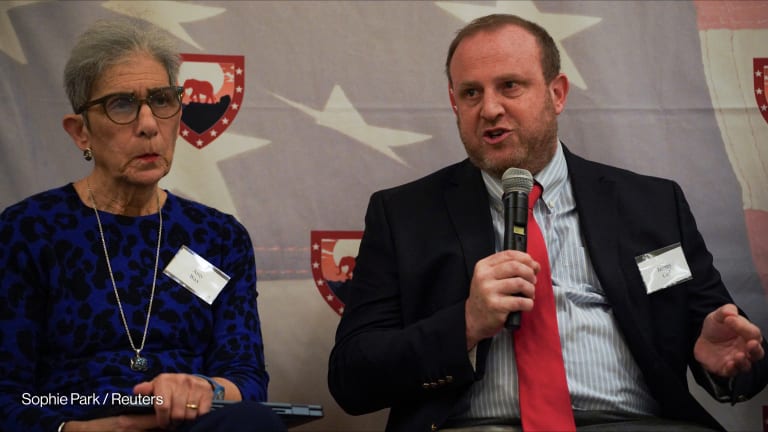
Samantha Power, U.S. President Joe Biden’s nominee to lead the U.S. Agency for International Development, will finally have her confirmation hearing with the Senate Foreign Relations Committee next week — more than two months after her nomination was first announced.
Power is considered the highest-profile nominee to lead USAID, and will likely face difficult questions from lawmakers, given the prominent role she has played in Democratic foreign policy for years.
In nominating her, Biden acknowledged Power’s unique standing — and signaled his administration’s emphasis on development — by announcing that the USAID administrator would have a seat on the National Security Council. U.S. development experts have largely welcomed this decision. But they also point out that it brings new challenges to an agency that has often operated on the margins of U.S. foreign policy.
Participation in the NSC is not new for USAID. Even while repeatedly proposing to slash USAID’s budget, former President Donald Trump established a formal role for the agency’s deputy administrator within the NSC’s deputies committee. Under Trump, the USAID administrator was invited to cabinet-level meetings — known as the “Principals Committee” — for discussions related to development and the agency’s work.
A former senior USAID official, speaking on condition of anonymity to share sensitive information, told Devex that was part of the agreement that brought former USAID Administrator Mark Green to the agency.
“She is already a respected member of this team, and so that means that [US]AID is going to start in this new permanent role with a very respected voice expressing the development point of view.”
— George Ingram, senior fellow, Brookings InstitutionBiden’s decision to include the USAID administrator in the principals committee in a more formal way is “a great step forward along this evolution,” Eddy Acevedo, former national security adviser at USAID, wrote to Devex.
Acevedo noted that throughout past administrations, USAID has participated in high-level meetings at the NSC.
“The key here is going past just being invited to the policy table, but instead maintaining an enduring seat at the table by contributing substantively to important interagency deliberations and effectively articulating how USAID is an essential component to help advance U.S. national security interests and to achieve our foreign policy objectives,” he wrote.
It was for that reason that Green created the position that Acevedo held, “with a dedicated centralized office to ensure that USAID had a unity of messaging at the NSC,” he wrote.
More on USAID:
► USAID nominee Power calls for US to lead on global COVID-19 response
The USAID administrator’s more regular participation at the NSC will likely create a “staffing burden” on USAID and require the agency to “expand the scope of the knowledge” to participate in broader discussions of U.S. foreign policy and national security, said George Ingram, a senior fellow at the Brookings Institution.
But in Ingram’s view, the benefits of having the administrator in the room for a wider range of deliberations significantly outweigh the costs, both for USAID and for U.S. policy decisions.
“If you’re only invited when somebody thinks you’re relevant, you probably don’t get invited to [an] NSC conversation to declare the Houthis in Yemen as a terrorist group,” Ingram said, referring to a designation that caused major disruption to humanitarian relief programs.
“It doesn’t mean that [US]AID will always win those conversations just because they’re at the table, but at least the development perspective will have a voice and can weigh in, and people will be more aware of what the ramifications are of what they’re doing,” he said.
That is also a big reason why Biden’s choice of Power, who served on the NSC under former President Barack Obama, is significant, Ingram said. As the USAID administrator secures a more formal seat in one of the most important national security fora, the person likely to occupy it already wields influence with those around the table.
“She is already a respected member of this team, and so that means that AID is going to start in this new permanent role with a very respected voice expressing the development point of view,” Ingram said.
Search for articles
Most Read
- 1
- 2
- 3
- 4
- 5








